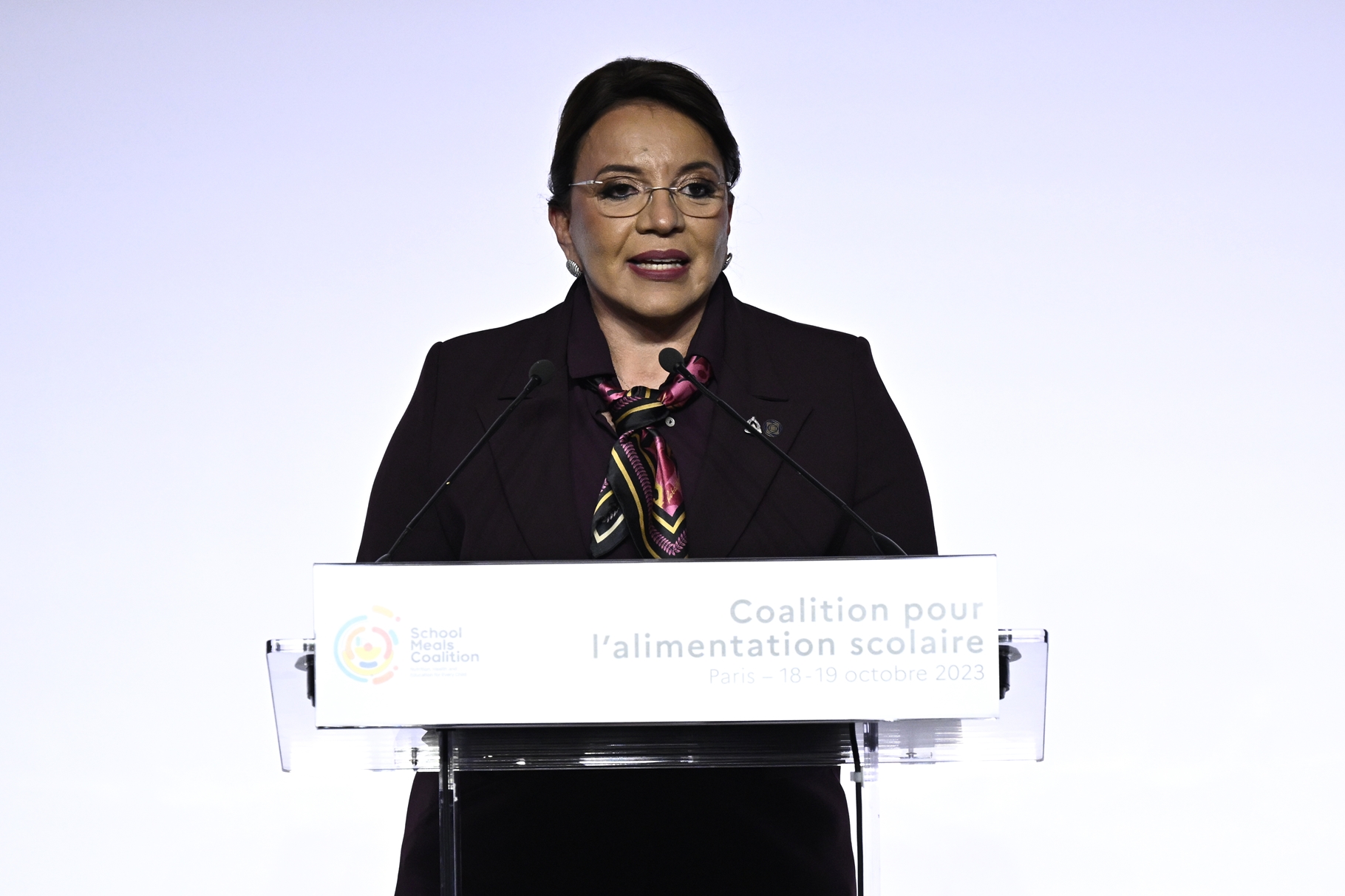
By Luis De Jesus
Aug 31, 2024, 9:03 PM EDT
The Honduran government has informed the U.S. Embassy in Tegucigalpa of its decision to terminate the extradition treaty between the two countries, Honduran Foreign Minister Eduardo Enrique Reina said.
During a press conference, he explained that he had sent a verbal note to the embassy, in which the US government was officially notified of the complaint.
“The Honduran Embassy is informed of the decision of the Government of the Republic of Honduras to terminate the Extradition Treaty,” said the verbal note, shared by the Honduran official on his social networks.
The announcement came after Honduran President Xiomara Castro ordered the foreign minister to “denounce” the extradition treaty with the United States.
Castro’s order followed remarks by the U.S. ambassador in Tegucigalpa, Laura Dogu, who expressed her country’s concern about a meeting between Honduran defense officials and Venezuelan Defense Minister Vladimir Padrino López, who is under sanctions.

Dogu told the media: “It is surprising and a bit disappointing to see Honduran government officials sitting with members of a cartel based in Venezuela.” He stressed that President Xiomara Castro “is in a constant fight against drug traffickers.”
How did Honduras react to the United States’ position?
Foreign Minister Reina described the ambassador’s statements as “dangerous, irresponsible and incorrect,” and recalled that this is not the first time Dogu has commented on Honduras’ internal affairs.
He also stressed that the diplomat’s public positions “disrespect our dignity as a State” and hinder a cooperative relationship between the two countries.
He also clarified that the decision to end the extradition treaty is limited exclusively to the United States and does not affect other agreements that Honduras has with other countries.
“We are not eliminating or denouncing other treaties that Honduras has with other countries, we are only referring to the one with the United States,” the foreign minister emphasized.
He insisted that international relations must be based on mutual respect, dialogue, non-interference and not trying to impose policies.
Xiomara Castro’s government will evaluate the relationship
The Honduran government plans to file a formal complaint with the United States over statements by its ambassador in Tegucigalpa, Reina announced, adding that the government will evaluate “what happens with the bilateral relationship.”
“We have been very open, very positive, very frank in trying to bring the relationship with the United States to the best level, but we do believe that the ambassador’s statements have not contributed or do not contribute to a good state of relations,” he stressed.
Between 2014 and 2024, Honduras extradited nearly 50 Honduran citizens requested mainly by the United States, mostly for drug trafficking.
Among those extradited is former Honduran President Juan Orlando Hernández, who was sentenced last June to 45 years in prison and five more years of probation by a New York court for crimes related to drug trafficking and the use of weapons.
Finally, Reina recalled that the extradition of Hondurans was enabled by a constitutional reform approved in 2012, which allowed other countries to request the extradition of Honduran citizens.
Continue reading:
• Edmundo González did not attend the third summons: what could happen to him?
• Venezuelan NGO denounces transfer of detainees in protests to an unknown destination
• Maduro regime says massive blackout in Venezuela was due to a “terrorist attack”
